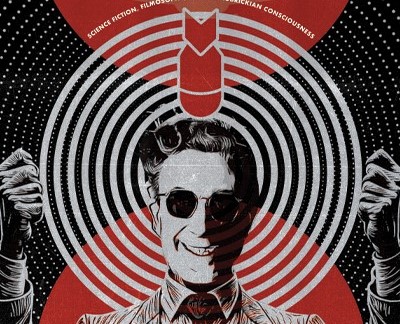
Within the first few pages of D. Harlan Wilson‘s newest book, Strangelove Country, I was struck by a powerful sense memory. I had an old friend I haven’t seen or heard from in over a decade. This friend knew more about movies and how they were made than anyone else I had ever met. He would spend hours explaining the symbolism in Bergman’s The Seventh Seal or how Danny Boyle paid tribute to James Bond in the ‘Worst Toilet in Scotland’ scene in Trainspotting. This friend also introduced me to Stanley Kubrick. He and I would spend late nights watching vaguely topical double features of Full Metal Jacket and Platoon or A Clockwork Orange with Robocop. I never needed the director’s commentaries or trivia tracks from my DVDs because my friend had somehow gathered an encyclopedic breadth of anecdotes from old magazines and interviews.
This conjuration of fond memories is the best possible compliment I could pay to Wilson’s new book. Reading it felt like having a close friend passionately explain their grand theories on artistic works they truly admire. Strangelove Country explores the cinema of Stanley Kubrick in a way that is novel, engaging, and thoroughly knowledgeable without getting lost in the stodgier cul-de-sacs that can sometimes obscure this kind of scholarly exploration.
In Strangelove Country Wilson focuses on Kubrick’s futurist trilogy-Dr. Strangelove, 2001: A Space Odyssey, and A Clockwork Orange-alongside A.I Artificial Intelligence, his posthumously released collaboration with Steven Spielberg. With these four films Wilson explores the “Kubrickian consciousness” through a lens of schizoanalysis and filmosophy and postulates that Kubrick’s oeuvre forms what he calls a “filmind,” a singular and autonomous identity distinct from the director.
I’ve always found it hard to call myself a Stanley Kubrick fan. I’ve seen A Clockwork Orange at least a dozen times and Dr. Strangelove is easily one of my favorite films but Eyes Wide Shut left me cold and I fall asleep every time I attempt to watch Barry Lyndon. Strangelove Country and the ways Wilson throws a conceptual net over Kubrick’s entire body of work, along with other books and movies of similar genres to give further context, gives me new reason to examine the “filmind” with a fresh point of view.
Wilson’s experience in various other genres of writing beyond film theory shines through in how Strangelove Country approaches the material in a novelistic way. The book is split into chapters, each focusing on a singular film while masterfully weaving a unified narrative at the same time. Because of his approach there are no dull moments to be found in its 187 pages.
I’ve known about D. Harlan Wilson’s work for a long time, seeing titles like The Kafka Effekt and Stranger on the Loose advertised in the back of Eraserhead Press books as far back as 2001, but had never had a chance to read one of his books before now. After finishing Strangelove Country I feel that I’ve done myself a great disservice by not trying harder to track down his previous titles. Wilson’s writing is concise and informative without being cold or distant. He writes with both knowledge and personality, making the prospect of exploring Kubrick’s oeuvre an unexpectedly welcoming experience if this work is even half as genuine as it reads.
I would recommend Strangelove Country to any cinema head, whether you’re a longtime fan of Kubrick’s films or not. It’s not often that you find works of scholarship, theory, and overwhelming fandom as engaging as this.
Strangelove Country comes out on March 18th from Stalking Horse Press.



